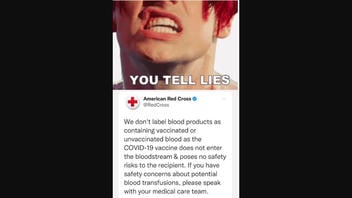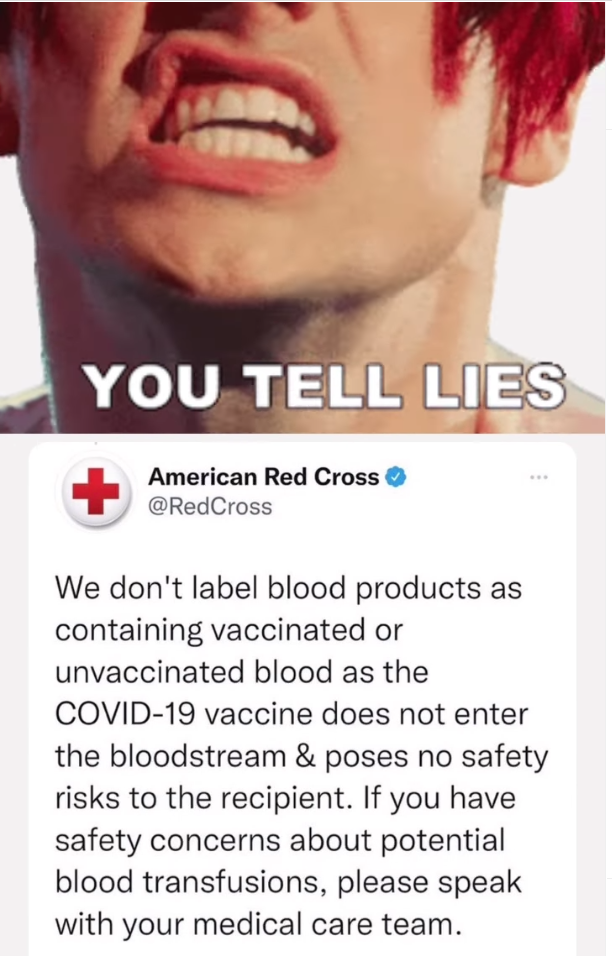
Is the U.S. blood supply contaminated by donors who have had the COVID-19 vaccine? No, that's not true: There is no scientific evidence that the vaccine enters the bloodstream and Lead Stories spoke to experts who refuted the claim.
The claim appeared in an Instagram post on September 23, 2022. It opened:
YOU TELL LIES
This is what the post looked like on Instagram at the time of writing:
(Source: Instagram screenshot taken on Mon Sep 26 16:01:12 2022 UTC)
The post shows a tweet from the verified American Red Cross account from April 2022:
We don't label blood products as containing vaccinated or unvaccinated blood as the COVID-19 vaccine does not enter the bloodstream & poses no safety risks to the recipient. If you have safety concerns about potential blood transfusions, please speak with your medical care team.
This message was in response to a Twitter account asking, "Now, how can you protect the unvaccinated from getting vaccinated blood? Do they specify the difference?"
The American Red Cross confirmed that as of September 23, 2022, it is still the organization's policy not to label blood products as vaccinated or unvaccinated. Jessica Merrill, director of biomedical services communications at the American Red Cross, told Lead Stories via email on September 23, 2022, that the vaccine is not found within the bloodstream:
The Red Cross, like all blood collectors in the U.S., is required to follow the eligibility guidelines by the FDA, including guidance regarding blood donor eligibility related to those who receive a COVID-19 vaccine. Blood donations from individuals who have received a COVID-19 vaccine are safe for transfusion. Similar to other vaccines such as measles, mumps or influenza, the COVID-19 vaccine is designed to generate an immune response to help protect an individual from illness, but vaccine components themselves are not found within the bloodstream.
UCLA virologist Dr. Otto Yang explained to Lead Stories via email on September 23, 2022, how the COVID vaccine is administered:
The vaccine is RNA injected into the muscle of the arm. This does not travel in any significant amount into the blood, and is very short-lived in the body anyway.
Abby Capobianco, press officer for the Food and Drug Administration (FDA), told Lead Stories via email on September 26, 2022, that the agency's statement from July 2021 regarding vaccines and blood "remains true." She noted the current recommendations for blood establishment (sites that work with blood donation, collection, processing, storage and distribution) during the pandemic are on the FDA website:
At this time there is no evidence to suggest that the transfusion of blood from those having received COVID-19 vaccination is associated with an increased risk of adverse events in recipients.
Additional Lead Stories fact checks related to COVID-19 can be found here.













